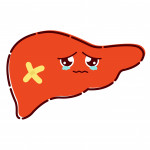The Food and Drug Administration (FDA) has approved AbbVie’s once-daily Mavyret to treat all six major genotypes of hepatitis C virus (HCV).The pangenotypic tablet includes the NS3/4A protease inhibitor glecaprevir and the NS5A inhibitor pibrentasvir.
The approval is for an eight-week regimen for those new to treatment who do not have cirrhosis or who have compensated cirrhosis (the milder form of the advanced liver disease), including those with moderate to severe chronic kidney disease and those who are on dialysis.
Mavyret, formerly known by the shorthand G/P, is also approved for those with HCV genotype 1 who were previously treated with a regimen containing either a drug from the NS5A inhibitor or the NS3/4A protease inhibitor class of direct-acting antivirals (DAAs), but not both.
The recommended treatment length depends on an individual’s past experience with hep C treatment, viral genotype and cirrhosis status.
For first-timers to treatment with all genotypes and no cirrhosis, eight weeks of Mavyret is recommended; for those who have compensated cirrhosis, defined as Child-Pugh A, 12 weeks is recommended.
Those undergoing repeat treatment for hep C are recommended to take either eight, 12 or 16 weeks of Mavyret. For those with genotype 1 with or without compensated cirrhosis who were previously treated with an NS5A inhibitor but not an NS3/4A protease inhibitor, 16 weeks is recommended; for those with genotype 1 with or without compensated cirrhosis who were previously treated with an NS3/4A protease inhibitor but not an NS5A inhibitor, 12 weeks is recommended.
Among those with genotypes 1, 2, 4, 5 or 6 who were previously treated with regimens containing interferon, ribavirin or sofosbuvir (sold as an individual tablet under the brand name Sovaldi) but not with an NS3/4A protease inhibitor or an NS5A inhibitor, eight weeks of Mavyret is recommended for those without cirrhosis, while 12 weeks is recommended for those with compensated cirrhosis.
For those with genotype 3 who were previously treated with regimens containing interferon, ribavirin or sofosbuvir but not with an NS3/4A protease inhibitor or an NS5A inhibitor, 16 weeks of treatment is recommended for those with or without compensated cirrhosis.
Mavyret is not recommended for those with moderate cirrhosis (Child-Pugh B) and is considered incompatible for use (contraindicated) by those with severe cirrhosis (Child-Pugh C). It should also not be paired with the HIV antiretroviral Reyataz (atazanavir), which is included in the tablet Evotaz (atazanavir/cobicistat), or the tuberculosis (TB) treatment Rifadin (rifampin).
Mavyret’s approval was based on data from nine clinical trials that tested eight, 12 or 16 weeks of the regimen in more than 2,300 individuals in 27 countries, including those with genotypes 1 through 6 of the virus. The studies included those with compensated cirrhosis, without cirrhosis, with severe chronic kidney disease and those who were not previously cured with DAA treatment. Cure rates ranged between 92 and 100 percent.
The most commonly reported adverse health events among those receiving Mavyret were headache, fatigue and nausea.
Recent studies have also found that Mavyret is safe and effective among those coinfected with HCV and HIV.
For the full prescribing information, click here.
To read the FDA press release on the approval, click here.
To read the AbbVie press release on the approval, click here.







Comments
Comments